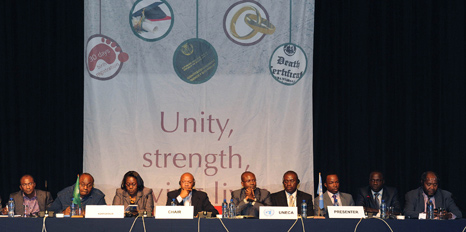Most South Africans will not give a second thought to a birth certificate, identity document, death certificate, marriage certificate or other civil registration documents. These are readily available at Home Affairs offices, once the hassle of applying for it is out of the way.
Once our information is on the document, we produce it when required - like when it is needed to open a bank account or apply for a driver’s licence - and then carry on with our lives.
Little do we realise the importance or even the luxury of having these documents – it is a privilege many in other African countries don’t enjoy, with dire consequences. Standing in a queue at the Department of Home Affairs in South Africa is not an administration issue but an issue of rights.
In fact, so essential are these documents that representatives from 54 African countries, among their ministers, recently held a conference in South Africa to discuss the progress countries have made in improving their civil registration systems and vital statistics. The ministers, together with experts in the field, met to plot the way forward for the continent at the second Civil Registration and Vital Statistics Conference in Durban (3-7 September 2012).

So just how important are these documents?
To child soldier, a young woman forced into a marriage, a widow desperate to keep her inheritance, or a country trying to identify a killer disease, it holds all the answers.
To widows on the African continent a marriage certificate is a valuable document, as proof of the marriage can ensure they receive what is rightfully theirs when their husbands passed away.
In countries where there is conflict, a simple document like a birth certificate can help identify children forced into the battle – the first step in helping them out of it.
A birth certificate can also prove the age of a girl forced into marriage and save her from an unhappy union.
Registering deaths provide authorities with vital information, such as the cause of death, which can help identify patterns or diseases killing the country’s citizens.
Information gathered through civil registration and vital statistics also helps governments plan for their citizens, in areas of healthcare, education, social services and so on. Despite the importance of this information, many countries don’t have the funding, human resources or proper systems to collect and record them or issue the documents.
Information from the conference suggests that in some African countries the average coverage of births is not even at 30%, meaning that the situation of 70% of the people is unknown. Africa must also tackle the scandal of invisibility – a phenomenon where people are born and die without ever leaving a trace in any legal record of their existence.
So while there is much work to be done, the general consensus is that African countries are finally waking up to the importance of ensuring the efficiency of their civil registration systems and accuracy vital statistics.
As Home Affairs Minister and African Union Commission Chairperson Nkosazana Dlamini Zuma told the conference she is chairing, this is not a sprint and governments will have to prepare for the long haul. But at least countries are out of the starting blocks.
Let’s work together to ensure everyone is registered at birth!
Nebo Legoabe is the Deputy CEO: Intergovernmental Coordination and Stakeholder Management at the Government Communication and Information System.




